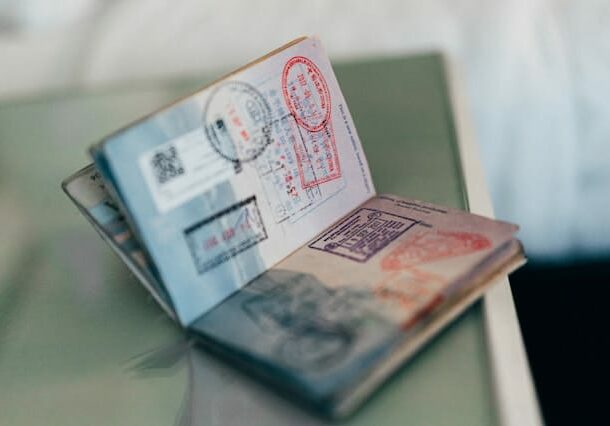One of the most common questions travelers ask is how long is a passport good for? Whether you’re planning a short vacation or an extended stay abroad, understanding passport validity is essential.
Every country issues passports with different timeframes depending on the traveler’s age and passport type. Additionally, many destinations enforce a six-month passport validity rule, requiring that your passport remains valid beyond the dates of your trip.
- Understanding Passport Validity and Why It’s Important
- Passport Validity by Age and Type
- Passport Validity by Country
- Six-Month Rule Explained
- Traveling Close to Passport Expiry
- Passport Renewal: When and How
- Emergency and Temporary Passports
- Diplomatic and Official Passports
- How Passport Validity Impacts Visas
- Frequently Asked Questions
A valid passport helps prevent fraud and ensures you can be identified while abroad.
Countries set time limits to maintain document security and to comply with international agreements.
Adult passports
Most countries issue adult passports valid for 10 years. This includes the United States, United Kingdom, and Australia. In Canada, adults over age 16 can choose between a 5-year or 10-year validity period.
Child passports
Children under 16 are typically issued passports with a shorter validity period of 5 years. This ensures their photo and personal information remains up to date as they grow older since their appearance will more frequently change year upon year.
Temporary and emergency passports
Temporary passports are typically valid for 1 year or less. These types of passports are issued in urgent situations, such as lost or stolen passports right before travel is to commence.
Most EU and Schengen Area countries require passports to be issued within the last 10 years. Ireland could be considered an exception as they sometimes tend to accept passports that are older.
United States
For a U.S. passport:
- Adults (age 16 and over): Valid for 10 years
- Children (under 16): Valid for 5 years
The U.S. Department of State recommends renewing your passport at least 9 months before it expires, especially if you plan to travel internationally.
United Kingdom
For UK citizens:
- Adults (16 and over): 10 years validity
- Children (under 16): 5 years validity
Before 2018, if you renewed your passport early, any remaining validity (up to 9 months) used to be carried over. This rule no longer applies, so the new expiry date is always 10 years from the date of issue.
Canada
Canadian citizens can choose between:
- 5-year adult passport
- 10-year adult passport
- 5-year child passport
Australia
Australian passports are valid for:
- 10 years for adults
- 5 years for children under 16
European Union (EU)
Most EU member states issue:
- 10-year passports for adults
- 5-year passports for minors
If you have dual citizenship, check both passports’ expiration dates before traveling.
Examples of countries enforcing this rule:
- Thailand
- Indonesia
- Malaysia
- China
- United Arab Emirates
- Philippines
- Vietnam
If your passport card has less than 6 months’ validity, airlines may refuse to board you, and border agents can deny you entry. Even if your destination doesn’t require six months of validity, some airlines still enforce this rule as a precaution.
While some countries technically allow entry with passports valid up to your return date, this can be risky and isn’t advisable.
This can cause issues like visa applications being denied if your passport expires too soon, airlines not allowing you to board flights or being turned away by immigration officers at the airport.
To avoid surprises, renew your passport at least 6 to 12 months before the expiration date of your passport book.
Renewing your passport before it expires is critical for stress-free travel and maintaining valid visa status.
How early should you renew your passport?
Many countries recommend starting the passport renewal process at least 6 to 9 months before your passport book’s expiration date. If you travel frequently or have upcoming trips, renew your passport even earlier.
Renewal before expiry
Yes, you can renew your passport anytime, even if it still has years left.
Benefits of early passport renewal:
- Ensures compliance with 6-month validity rules.
- Allows time for potential processing delays.
- Prevents urgent last-minute passport applications.
Renewing early does not reduce your next passport’s validity. A new passport will be valid for the full term from the issue date (5 or 10 years).
Renewal process: step-by-step
Here’s what most countries require:
- Complete a passport application form for renewal (online or paper).
- Submit your current passport (unless it was lost or stolen).
- Provide updated passport-sized photos.
- Pay applicable fees.
- Submit supporting documents if needed.
- Wait for processing of new passport, which can take 4 to 6 weeks for standard service or 1 to 3 weeks for expedited service.
Note that processing times can double during peak travel seasons.
Renewing a child’s passport under age 16 usually involves a few extra steps:
- Both parents (not just one parent) or legal guardians typically must provide consent, either in person or by submitting notarized authorization forms.
- You’ll need to submit the child’s birth certificate or proof of relationship.
- Child passport renewals cannot always be done by mail. For example, in many countries (including when renewing a U.S. passport), they must be processed in person.
- For adopted children, you must also include certified adoption papers or adoption decree confirming legal custody or guardianship.
When you lose your old passport or need to travel urgently, you may qualify for an emergency or temporary passport.
Why are they issued?
Common scenarios include:
- Lost or stolen passport right before travel
- Family emergencies requiring immediate departure
- Damaged passports
How long do they last?
Emergency passports usually have a validity of 3–12 months, depending on the issuing country.
Are there any limitations?
Some countries do not accept temporary passports for entry or visa-free travel.
This is due to security concerns and the limited validity of this type of passport book. These passports may lack the security features of regular passports and have a short validity period, making them less reliable for international travel.
These specialized passports are issued to:
- Diplomats
- Consular staff
- Certain government employees
These are typically valid for 5 years, though this varies by country and type of diplomatic role. Though diplomatic passport cards often come with special privileges, but they are only valid for official travel purposes.
Examples:
- Schengen Visa: Passport must be valid at least 3 months after you leave.
- Portugal D7 Visa: Passport should have at least 6 months’ validity when you apply and when you enter the country.
- Greece Golden Visa: Passport must be valid for at least 12 months at the time of your residence permit application and for the duration of your initial residence.




